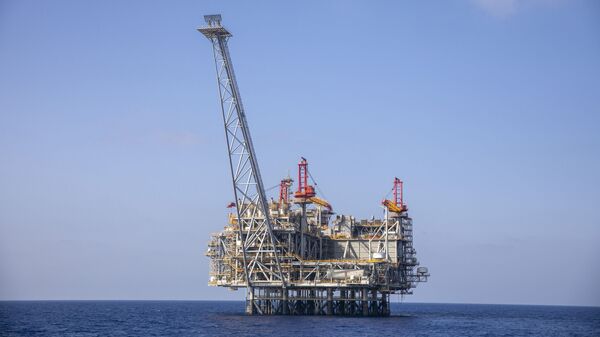After 30 years of no direct negotiations, Israel and Lebanon are slated to sit down for talks on Wednesday in a bid to demarcate their maritime borders and enable the excavation of gas located in the eastern Mediterranean.
Israel's energy minister Yuval Steinitz has already established a team that will head to a UNIFIL base in Naqoura, located in South Lebanon, and has stated that his country was prepared to reach an agreement with Beirut as long as the northern neighbour was determined to get a deal done.
The talks are not promising to be easy. Since the discovery of gas reservoirs in Eastern Mediterranean in 2009, Israel and Lebanon have been battling each other, unable to agree on a maritime border that makes about 860 square kilometers.
Each side has claimed that that territory is within their own exclusive economic zone, a dispute that has kept investors at bay and potential gas wells below water.
Wind of Change
Now, however, it seems to be changing. Dr. Avinoam Idan from the Chaikin Centre of Geostrategy & Centre of Maritime Policy and Strategy at Haifa University in northern Israel, says Lebanon has good reasons to enter direct talks with the Jewish state.
"To start off, the US is deeply involved in these talks, but it is not only on a political level, it is also invested there economically, especially now that such a heavyweight as Chevron is taking over," he says, referring to the conglomerate's acquisition of Nobel Energy, a company that had operated two gas fields off Israel's coast.
But Washington is also motivated by diplomatic gains, and is interested in positioning itself as a global mediator able to resolve decades-long conflicts, like the one between Israel and Lebanon. The two countries have locked horns on a number of occasions, notably in 1982 during the First Lebanon War and during its sequel in 2006.
In August, the annual inflation rate surged to 120 percent, a spike from the previous month, when it stood at slightly more than 112 percent.
The unemployment rate passed the 30 percent mark; more than 55 percent of the country's population is trapped in poverty, unable to lift themselves up.
Hezbollah Under Pressure
The deadly explosion at Beirut's port, which is estimated to have caused $15 billion in damages, has only made the situation worse, not only economically but also socially, specifically because it contributed to the alienation of Hezbollah, a Shiite militia with close ties to Iran that was partially blamed by some Lebanese for negligence that surrounded the blast and made sectarian divisions within Lebanon even wider.
"Hezbollah is not in its best position these days. First, they lost Qasem Soleimani, one of Iran's top commanders, who was responsible for establishing and maintaining the ties between the Islamic Republic and the group, and then they were blamed for the explosion at the Beirut port, something that aggravated the sentiment against them," says Idan.
But these were not the only factors that allegedly pushed Hezbollah, one of the key players in Lebanon’s politics, into a corner and prompted it to give its greenlight for holding talks with Israel.
A series of US sanctions imposed on individuals and companies associated with Hezbollah have decreased the group’s income.
That income has also suffered losses as a a result of the dire economic situation in Iran that reportedly provides the Shiite militia with some 70 percent of its annual budget, or roughly $700 to $800 million annually.
"Saudi Arabia has also played a role in making these talks possible," argues Idan.
Even before Lebanon was rocked by the challenge of COVID-19 and the repercussions of the Beirut blast, Riyadh vowed to assist Lebanon in steering through its economic crisis, pledging billions of dollars to its ailing economy.

It seems that Hezbollah’s leadership understood the ruse. But as one Israeli journalist once wrote, the group has been "caught in the middle," trapped by its unwillingness to cooperate with the "Zionist enemy" on the one hand, and unable to go against the talks that might unlock billions of dollars in assistance, on the other.
Nevertheless, Idan believes the current situation has much better chances now for the talks to yield results than in the past.
"Right now, I think Lebanon has much more supporters of the deal with Israel on maritime borders than opponents. Plus, the crisis is too big right now to ignore it and the US is too deeply involved in the talks so it will not back out."
Is the agreement destined to develop into anything beyond maritime demarcation? Will it lead to an end of the two states' territorial dispute or perhaps even a peace deal with Lebanon, which is currently regarded as an enemy state by Israel?
Idan says it is hard to tell, but optimism still prevails that one day fiction will turn into reality:
"In the past we used to joke that we didn't know what country would be first to recognise Israel but we knew that Lebanon would be second [due to the friendly relations the Jewish state had with Beirut before the eruption of the First Lebanon War in 1982 - ed.] Now there is a chance for a dialogue so things look definitely more optimistic than they were years ago".




